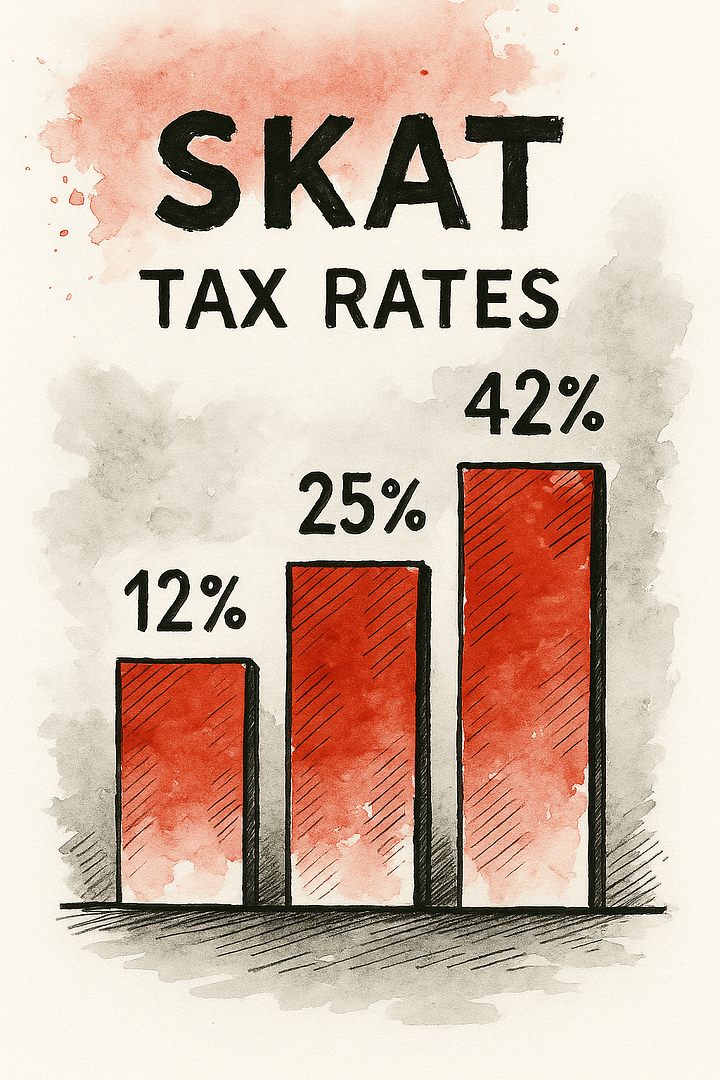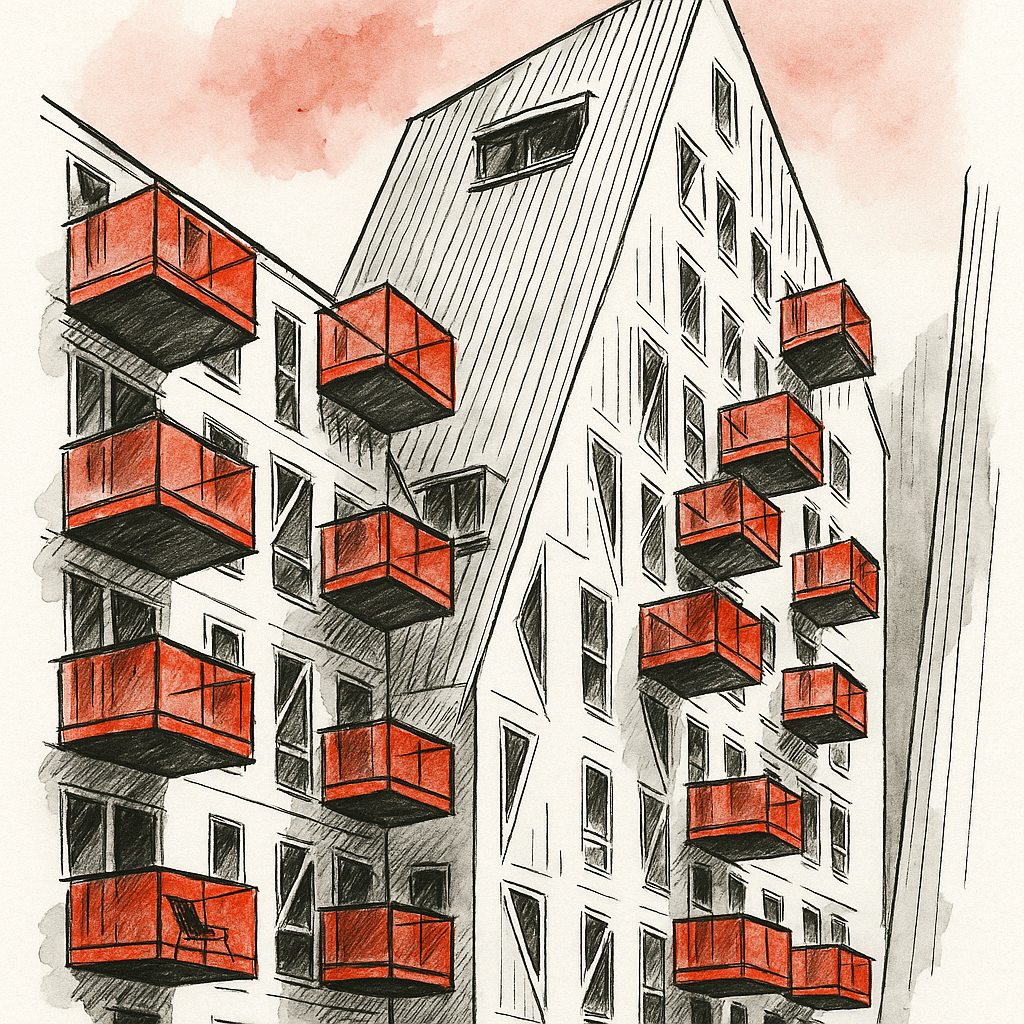Moving to Denmark as an Non-EU Citizen?
As a non-EU citizen, moving to Denmark may seem complex, but with the right guidance, it’s entirely possible. From securing the right visa to navigating the job market and settling in, we’re here to help you every step of the way.
As a Non-EU Citizen, You need a Visa or Work Permit to Live in Denmark
For non-EU citizens, moving to Denmark requires a bit more paperwork and planning. Unlike EU citizens, you can’t simply show up and settle in without the proper visa or work permit. Whether you’re coming for work, studies, or family reasons, you’ll need to apply for the correct residence permit before entering Denmark.
Once you’ve received approval, you’ll need to register with the Danish authorities. This means getting a CPR number (your key to accessing healthcare, opening bank accounts, and more), registering your address, and ensuring you’re set up for taxes. Denmark’s residency rules can be strict, but with the right steps, you can quickly start your new life here, from finding a place to live to securing a job.
What to do
You Need a Residence or Work Permit
Before you can move to Denmark, you must apply for the appropriate residence permit. This could be for work, studies, family reunification, or other valid reasons. The application process typically requires proof of employment, sufficient funds, or enrollment in a recognized educational institution. Be sure to check the specific requirements for your situation before applying.
Registering with Danish Authorities is Mandatory
Once you arrive in Denmark, registering with the Danish authorities is essential. This includes obtaining a CPR number, which is needed to access public services such as healthcare and to open a bank account. You will also need to register your address with the local municipality.
Secure Housing Before You Move
Finding a place to live is a top priority. Denmark’s rental market can be competitive, especially in cities like Copenhagen. Be prepared to start looking early and gather necessary documentation for renting, such as proof of income and your residence permit. Whether you plan to rent an apartment or share housing, finding suitable accommodation should be one of your first steps.
Understand Taxation and Health Care – It’s Complicated
As a non-EU resident, you will be subject to Danish taxation, so it’s important to understand your tax obligations. Your CPR number will also give you access to the Danish healthcare system, ensuring that you are covered for medical needs. Be sure to familiarize yourself with the tax system and your rights to health services to avoid any surprises.
Contact Us Anytime
Reach out to us for personalised advice or to schedule a consultation.
Thinking about moving to Denmark? We’re here to help! Whether you need guidance on work visas, residency permits, housing, or life in Denmark, our team is ready to provide clear, advice tailored to your situation.
Frequently Asked Questions (FAQs)
Here are quick answers to some of the most common questions people ask when thinking about moving to Denmark.
Learn More About Work/Life in Denmark

Understand Danish Taxation and Health Care in 2025
Primary keyword: “Understand Danish Taxation and Health Care” Quick-Read Takeaways 1 │ Why Taxes & Healthcare Are a Package Deal in Denmark Denmark links its digital identity (CPR), tax administration (SKAT) and national health service. No CPR → no tax…

Secure Housing Before You Move to Denmark
Quick-Read Summary 1 | Why “Secure Housing” Is Literally Step One Danish residence-permit rules oblige newcomers to show a permanent address before CPR activation. No address → no CPR → no bank account, pay-cheque, doctor or MitID login. Add in…

Registering with Danish Authorities Is Mandatory
1 | Why Registration Is Non-Negotiable Denmark’s digital public sector runs on the CPR number. Without it you cannot: Failing to register (or registering late) breaks the Folkeregisterloven and may incur fines—plus weeks of frustrating delays. 2 | Legal Requirements…

Building Your Social and Professional Network in Denmark
Establishing and nurturing a strong social and professional network is crucial for both personal and career growth. A robust network opens doors to new opportunities, fosters collaboration, enhances personal development, and supports you during career transitions. This guide will explore…

Embracing Everyday Life in Denmark
Moving to Denmark offers an exciting opportunity to experience a balanced lifestyle, vibrant culture, and exceptional quality of life. Understanding how a typical day unfolds in Denmark can greatly ease your transition and help you integrate smoothly into Danish society….

Navigating the Danish Visa and Immigration Processes
Denmark consistently ranks among the top countries globally for its excellent quality of life, exceptional education system, stable economy, and inclusive society. These factors make Denmark particularly appealing to expatriates, international students, and families looking to relocate. However, navigating the…

Understanding Danish Work Culture
Danish work culture is globally admired for its balanced approach to professional life, openness in communication, and strong emphasis on collaboration and equality. However, adapting to Denmark’s distinctive workplace norms can be challenging for newcomers. This comprehensive guide dives deep…

Special Visas Including Asylum in Denmark
Understanding special visas including asylum in Denmark is essential if you seek protection or specialized residency due to unique circumstances. This step-by-step guide will walk you logically through the entire process, clearly explaining each crucial stage. 1. Types of Special…

Study and Other Visas in Denmark
If you plan to study or stay in Denmark for reasons other than employment or family reunification, understanding the process of obtaining study and other visas in Denmark is crucial. This detailed guide covers everything from eligibility criteria to the…
